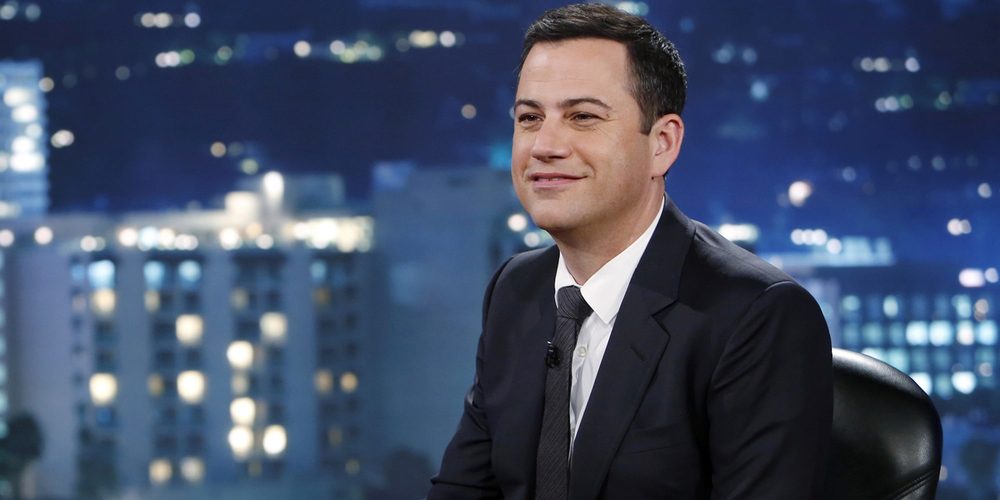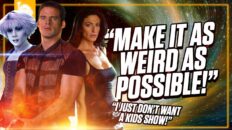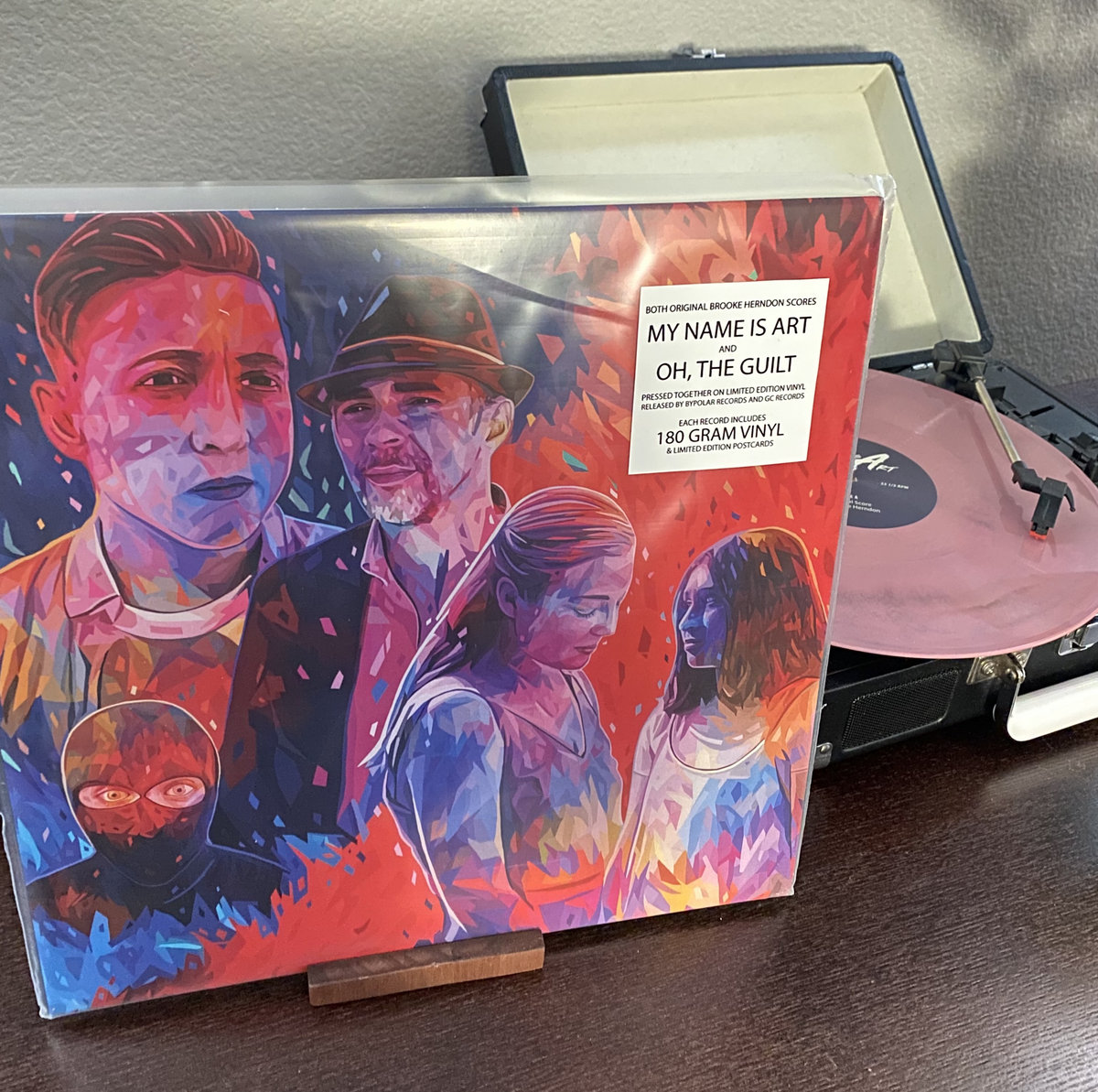Late night comedy host Jimmy Kimmel has had a political awakening of sorts over the course of the last year. Previously an avowed non-partisan entertainer, he awoke from his political slumber during the Obamacare debate last Fall to issue a passionate series of speeches regarding the healthcare debate, having recently gone through a traumatic health scare suffered by his newborn son. Ever since, he hasn’t been shy about taking on the President.
Kimmel’s experience is a quintessential conversion experience; many people, even those able to empathize with friends, strangers and neighbors, have a hard time getting on board with things outside their lived experience until they personally encounter it. I have read dozens of accounts of people against aid to the poor, people in favor of bombing distant countries, racists, homophobes, transphobes and more who, when confronted by the humanity of the thing they hate or oppose, find their hate dissolve in an instant. Most people find it more difficult to hate a person with a name than an idea or an abstract concept. Now, obviously Kimmel isn’t on the same level as those people, but he was proudly sitting on the bench, happy to let Stephen Colbert and Seth Meyers punch themselves into a ragged stupor every night with Trump jokes while staying above the fray. But having gotten off the bench, Kimmel has launched himself into the political zeitgeist in a very different and more thoughtful way than his late-night brethren.
Last week, Kimmel invited a group of hardcore, MAGA hat wearing Trump supporters to meet with a real-life Dreamer, a young mother with a young child and her fiancée, who is a US citizen. Their meeting was probably not the kumbaya moment you might expect. One might assume that when confronted with a young woman who has been in this country since she was two, is as culturally American as anyone else in that room, who has a young daughter and fiancée (both of whom are American citizens), and when asked if that family should be broken apart, any one would react with compassion and love and say that of course, in this case, the family should be kept together.
That’s not what happened.
Faced with this young family, the proud Trump supporters told her to “go home.” To make “her country” better with the skills America has bestowed upon her. She could come back, maybe, even if it took a decade or longer. Where was their compassion? Where was their basic humanity? I’m not sure if these issues are as intense as the height of the Civil Rights Movement in the 60s, but watching this reminded me of white supremacists screaming in the faces of black students during the first day of school for the Little Rock Nine. And to top it off, they still claimed America was a place of compassion and love. I don’t see how the evidence supports that conclusion, and Kimmel was right to point out the flaw in their logic.
I think that’s the issue that Kimmel is putting in sharpest relief. America has a problem. Well, America has a lot of problems, but there are the big picture problems dealing with political ideologies that will always exist, and then there are the person to person problems that begin to erode the foundations that hold a society together. I talked in a previous article about how I felt tribalism was furthering the divides between Americans, and I believe what’s making it easier to destroy the ties that bind us together is a serious lack of empathy and compassion in American society. America is suffering from an acute empathy gap.
Kimmel does a great thing by actually putting these people in a room in a small group, face to face, where they can’t hide behind social media. Van Jones of CNN has been attempting to put himself face to face with actual Conservative rank and files as well, outside the Washington political ecosphere. I think this could lead to some real progress – in time – to bring the country together, because it would do something that happens almost nowhere else with any real visibility; show people (not politicians) actually talking to each other, hearing each other, and coming to grips with those differences. That doesn’t happen much these days. And the fact that this room full of people on Kimmel’s little sociology project can wag a finger in the face of this young family and tell them their mother should be booted out of the country before law enforcement kicks out a gang of ruthless killers (MS-13) shows that we have a long way to go.
It has become too easy in America to make decisions for and about other people without ever having to look them in the eye, and I think the distance created by modern technology and modern life have made it too easy to see large portions of the country as illegitimate. You saw it perhaps most pronounced on the national stage with Sarah Palin’s 2007 campaign idea of there being a “real America,” which is basically everywhere that isn’t a big city where liberals might live. That America – not real America – was where fake Americans live, where traitors live, people who don’t really believe in America the way the true patriots do. This is a dangerous idea, because it strikes at those foundations of society I mentioned before. If we can’t agree on the most fundamental thing; that we’re all Americans who want to make this a better place to live, how are we ever going to be able to work together to actually make it happen? I think any compassionate person in that room in Kimmel’s piece would have been moved by their situation, and not so heartless or wedded to tribal ideology that they could stomach the idea of breaking that family apart to send away a woman who did nothing wrong, whose only crime is merely existing, and growing up, and becoming as American as you or me, but having the ill-fortune to have been born on foreign soil.
I’m not unsympathetic to the concerns about legal precedents. Granting citizenship to all these people probably would provide an incentive for others to attempt to come here illegally, but I would argue three points against that really mattering: 1) They’re all here anyway. There are millions of undocumented people here and they’ve been here for decades. Clearly the incentive already exists. Besides, we can’t kick them out anyway because, 2) We need them. Despite cries that they’re stealing our jobs, America has a serious problem with jobs going unfilled, and undocumented workers often do jobs Americans won’t do, in agriculture and other places. And even if all that wasn’t true, there’s still, 3) We’re all human beings, and if we want to claim that America is a compassionate country and not a nation of heartless, cruel monsters, we can’t break apart families that just want to live here, contribute to society, raise more American citizens, and be good neighbors.
One of my favorite speeches in American history was the brief remarks made by Robert F. Kennedy on the evening of Martin Luther King’s assassination. He spoke to a crowd from the bed of a flatbed truck, a gathering of mostly black residents of Indianapolis. They had not yet heard of King’s death, and Kennedy took it upon himself to be the bearer of bad news and to offer words of comfort. He spoke to a nation divided, struggling with a violent seed of virulent racism that made living together seem impossible. In his speech, which totaled less than five minutes, he asked “in this difficult time for the United States, it’s perhaps well to ask what kind of nation we are and what direction we want to move in?” He said there was a path that led toward greater factionalism, greater polarization, and ultimately more hate. Or he said, we can “make an effort to understand and to comprehend and replace” that hatred and violence with “compassion and love.” What America needs now more than ever is a leader who commits himself not to further division, but to unity and compassion, as Kennedy himself said:
What we need in the United States is not division, what we need in the United States is not hatred, what we need in the United States is not violence and lawlessness, but is love and wisdom and compassion toward one another, feeling of justice toward those who still suffer within our country.
Too many people out there are too quick to want to dump Obamacare because it doesn’t help them, uncaring of those it would hurt. Too many people out there are too quick to want to kick out the Dreamers, because they view citizenship as a zero-sum game where we are all competing against one another for government resources, rather than seeing us as a community that can share and build something together. We need a community-focused approach to solving our problems that brings people together.
Perhaps Kimmel and others can continue to try to bring Americans together to ask Kennedy’s question of what kind of country we are and what kind of country we want to be. Perhaps they can begin to close the empathy gap, to spread compassion and love across this country, to all listen to the voices of our better angels. I really do believe that America could be a special place, with diversity and fellowship unmatched anywhere else in the world, if only we can get past this moment and start treating each other with the compassion owed to the best and least among us alike.










Great article!